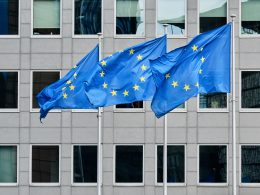Brazil is on the brink of establishing a regulated carbon market to reduce emissions and foster reforestation after the Senate passed a critical bill on Wednesday. The legislation, which now returns to the lower house before requiring President Luiz Inacio Lula da Silva’s signature, marks a significant step toward setting up a national emissions trading system. The bill’s progress comes amid the COP29 summit in Azerbaijan, where Brazil committed to reducing emissions by 67% from 2005 levels by 2035. With Brazil set to host COP30 next year in Belem, advancing the bill has become a high priority for the government.
The proposed carbon market will allow companies exceeding emission limits to purchase credits from those that operate within their quotas. Additionally, they could buy credits from voluntary market developers with reforestation or forest conservation projects. If the bill becomes law, Brazil will join nations including the EU, China, Japan, and Mexico with regulated emissions trading frameworks.
The carbon market initiative aligns with Brazil’s broader environmental goals, which include halting Amazon deforestation and achieving carbon neutrality by 2050. Brazil’s expansive deforested lands, well-suited to rapid tropical reforestation, offer a unique strategic advantage for nature-based carbon removal. “The single largest opportunity for reforestation is in Brazil,” said Peter Fernandez, CEO of carbon removal startup Mombak Gestora de Recursos Ltda. “Brazil is positioned to become the Saudi Arabia of carbon removal.”
The government estimates the market will impact approximately 5,000 companies while carbon offset and removal initiatives could boost Brazil’s economy by up to 2% and create jobs in remote areas, according to Davi Bomtempo, superintendent of environment and sustainability at the Brazilian National Confederation of Industry.
However, the bill has faced criticism for excluding agriculture, Brazil’s largest economic sector, which accounts for about 25% of the country’s carbon emissions. Critics argue that agriculture’s exclusion allows the industry to profit from carbon credit sales without being mandated to reduce emissions.
Supporters of the exclusion argue that accurately measuring agricultural emissions remains complex, while critics point to the strong influence of Brazil’s agricultural lobby.
Brazil is already a prominent producer of carbon credits in voluntary markets, accounting for 6% of credits retired since 2015. With the potential to generate up to 30.5 billion metric tons of carbon credits by 2050, the new legislation aims to drive additional demand for voluntary credits, which can offset excess emissions.
The voluntary carbon market, however, has struggled with cases of greenwashing, and some projects have faced legal scrutiny for abusive practices, harassment of indigenous communities, and unfulfilled promises. A regulated market could curb these issues, though much depends on the final version of the bill.















